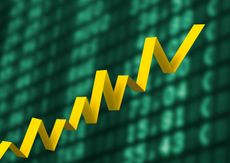Stock Market Trading Hours: What Time Is the Stock Market Open Today?
When does the market open? It's true the stock market does have regular hours, but trading doesn't necessarily stop when the major exchanges close.


When does the market open? It's certainly a simple question, but one with more answers than you'd think.
The regular trading hours for the U.S. stock market, which includes the Nasdaq Stock Market (Nasdaq) and the New York Stock Exchange (NYSE), are 9:30 am to 4 pm, except on stock market holidays. There are also several early closure days such as July 3, typically around other holidays, when regular stock market trading potentially ends at 1 pm. (All times Eastern unless otherwise indicated.)
Pre-market and after-hours trading
Trading also occurs beyond these regular stock market trading hours. On days with a regular session, for instance, there is "pre-market" and "after-hours" trading.

Sign up for Kiplinger’s Free E-Newsletters
Profit and prosper with the best of expert advice on investing, taxes, retirement, personal finance and more - straight to your e-mail.
Profit and prosper with the best of expert advice - straight to your e-mail.
Pre-market trading happens before the market opens. While hours may vary between brokerage firms, they can extend as early as 4 am and run until the opening bell rings at 9:30 am.
After-hours trading occurs once the market closes and typically runs from 4 pm to 8 pm.
Pre-market and after-hours trading are performed on "electronic communications networks," or ECNs, and directly pair buyers and sellers rather than using a middleman. While this kind of trading once was only accessible to large institutional buyers, today online brokers and trading platforms such as Fidelity and Charles Schwab facilitate this for market participants.
Still, many brokers limit the types of transactions that can occur in pre-market and after-hours trading, so you'll want to check with your individual broker to see what they allow.
Should I buy and sell stocks in pre-market and after-hours trading?
Just because you can trade outside of regular stock market trading hours doesn't necessarily mean you should. Investors should be aware of the risks associated with extended trading, including the fact that volume tends to be lower in pre-market and after-hours trading.
"Besides low volume, there is also limited liquidity during extended hours, which can lead to increased volatility, larger spreads, and greater price uncertainty," Toronto-Dominion Bank explains in a post. "Plus, earning reports are typically announced after regular trading hours which can lead to major price swings."
When does the market open for cryptocurrencies?
The digital currencies market is an easy schedule to remember. Cryptocurrencies trade 24 hours a day, seven days a week. From bitcoin to the smallest altcoin, if you have an itch, you can scratch it whenever you'd like.
That said, not all brokerage firms offer access to cryptocurrencies, so you'll want to check with yours to see if they allow buying and selling of digital assets – or find a centralized crypto exchange like Coinbase Global (COIN).
Bitcoin ETFs, cryptocurrency funds and the recently approved spot bitcoin ETFs can be traded during regular stock market trading hours.
When does the market open for commodities trading?
Futures trading on commodities such as oil, gold and wheat can be done nearly as often as cryptocurrencies. However, hours vary by exchange. For instance, commodities trade electronically from 6 pm Sunday to 5 pm Friday on CME Group exchanges.
But regular trading hours at the competing Intercontinental Exchange run from 8 pm Sunday to 6 pm Friday.
Investors can buy and sell shares in commodity ETFs during regular trading hours.
When does the market open on the weekends?
There are no regular trading hours for stocks on Saturdays or Sundays. However, if you see news on a Sunday night saying that stock futures are down, that's because most futures contracts (including equity futures, but also commodities such as oil and agricultural products and other investments) begin trading Sunday night on the major exchanges.
When does the market open for international stocks?
For investors looking to trade global markets and international stocks in real time, they'll need to grab an evening pot of coffee first, depending on what country they're following.
Here are the trading times for some of the largest global stock exchanges. (All times featured here represent regular trading hours, Monday-Friday, and are listed in Eastern time.)
- Toronto Stock Exchange (TSX): 9:30 am to 4 pm
- Mexico Stock Exchange (BMV): 9:30 am to 4 pm
- London Stock Exchange (LSE): 3 am to 11:30 am
- Euronext Paris (EPA): 3 am to 11:30 am
- Frankfurt Stock Exchange (FRA): 3 am to 11 am
- Tokyo Stock Exchange (TSE): 8 pm to 10:30 pm, 11:30 pm to 2 am
- Shanghai Stock Exchange (SSE): 9:30 pm to 11:30 pm, 1 am to 3 am
- Shenzhen Stock Exchange (SZSE): 9:30 pm to 11:30 pm, 1 am to 3 am
- Hong Kong Stock Exchange (HKG): 9:30 pm to 12 am, 1 am to 4 am
On the other hand, investors can trade American depositary receipts (ADRs) – foreign companies that trade on domestic stock exchanges – during regular U.S. trading hours.
Related Content

To continue reading this article
please register for free
This is different from signing in to your print subscription
Why am I seeing this? Find out more here
Get Kiplinger Today newsletter — free
Profit and prosper with the best of Kiplinger's advice on investing, taxes, retirement, personal finance and much more. Delivered daily. Enter your email in the box and click Sign Me Up.

-
 Beryl Portends a Harsh Hurricane Season: Are You Ready?
Beryl Portends a Harsh Hurricane Season: Are You Ready?Hurricane Beryl is breaking records as the first hurricane of the season. Do you have the insurance you need?
By Erin Bendig Published
-
 Stock Market Today: Markets Set Fresh Highs as CPI, Earnings Loom
Stock Market Today: Markets Set Fresh Highs as CPI, Earnings LoomStocks wavered on light volume ahead of a busy week for economic news and corporate earnings.
By Dan Burrows Published
-
 Stock Market Today: Markets Set Fresh Highs as CPI, Earnings Loom
Stock Market Today: Markets Set Fresh Highs as CPI, Earnings LoomStocks wavered on light volume ahead of a busy week for economic news and corporate earnings.
By Dan Burrows Published
-
 Five Stocks With Solid Growth History and a Promising Outlook
Five Stocks With Solid Growth History and a Promising OutlookFive reasonably priced stocks with solid growth history and a good chance of delivering earnings even if the economy softens.
By Kim Clark Published
-
 Why You Should Invest in Commodities
Why You Should Invest in CommoditiesThese portfolio diversifiers are in a long-term uptrend and show why you should invest in commodities
By Anne Kates Smith Published
-
 Now's a Great Time to Build a Bond Ladder
Now's a Great Time to Build a Bond LadderNavigating how to proceed with new or rollover money can be daunting. Here are some of the best ways to guarantee a high yield to maturity and full recovery of principal.
By Jeffrey R. Kosnett Published
-
 What's the Most Popular Investment? These Investors Might Be Missing Out
What's the Most Popular Investment? These Investors Might Be Missing OutThe most popular investment may shock you and it has widely underperformed other asset classes. Here’s what you need to know.
By Joey Solitro Published
-
 Stock Market Today: S&P 500 and Nasdaq Hit Records as Jobs Growth Slows
Stock Market Today: S&P 500 and Nasdaq Hit Records as Jobs Growth SlowsAn uptick in the unemployment rate amid a cooling labor market could accelerate the Fed's rate-cut timeline.
By Dan Burrows Published
-
 Softer June Jobs Report Raises Rate-Cut Bets
Softer June Jobs Report Raises Rate-Cut BetsJobs Report Slower hiring and a rise in the unemployment rate up the odds of the Fed easing more than once before year-end, experts say.
By Dan Burrows Published
-
 Insurance Stocks Do Just Fine Amid Harsh Weather
Insurance Stocks Do Just Fine Amid Harsh WeatherStrange as it sounds, heat waves and car accidents might be good for your portfolio.
By James K. Glassman Published